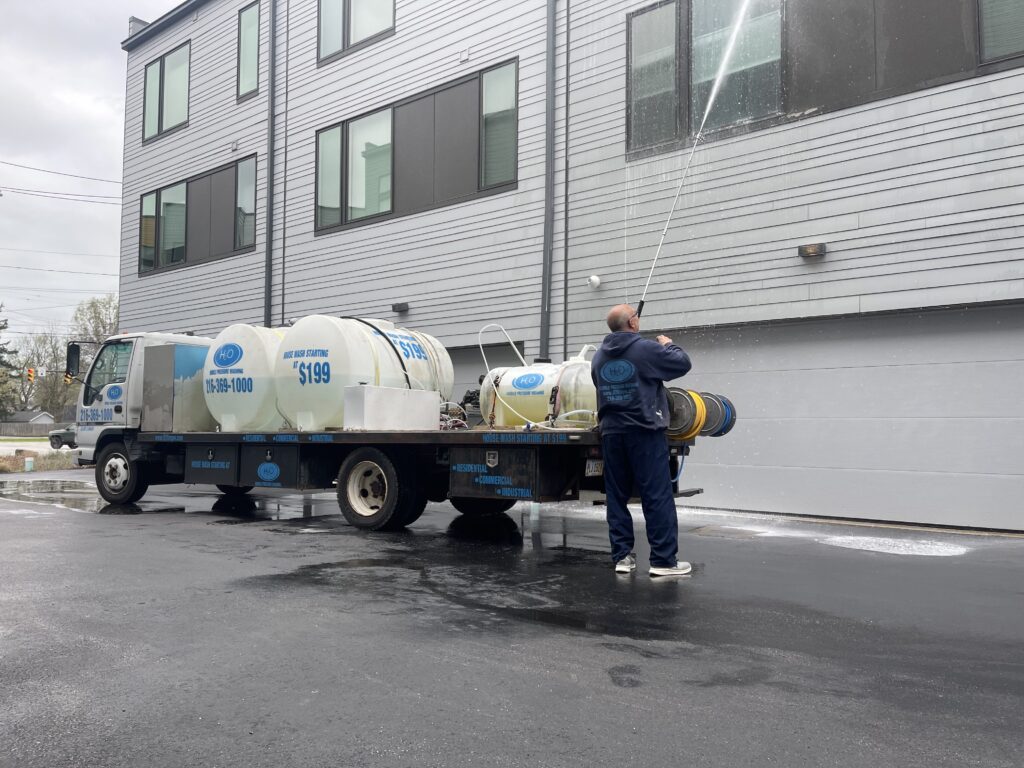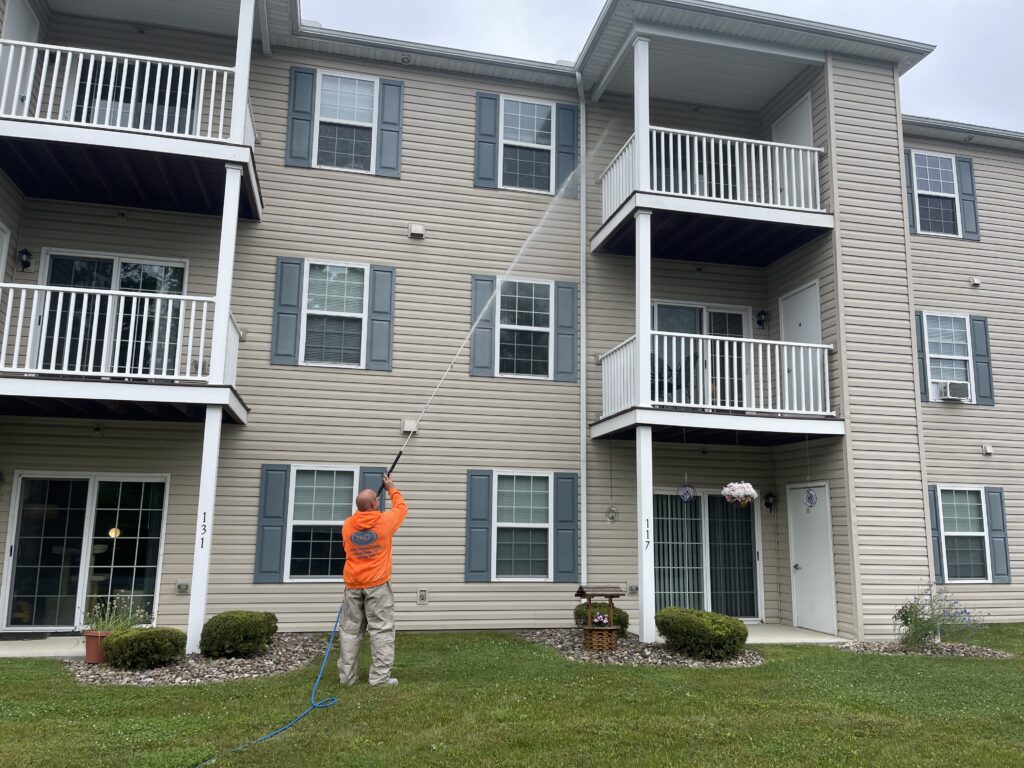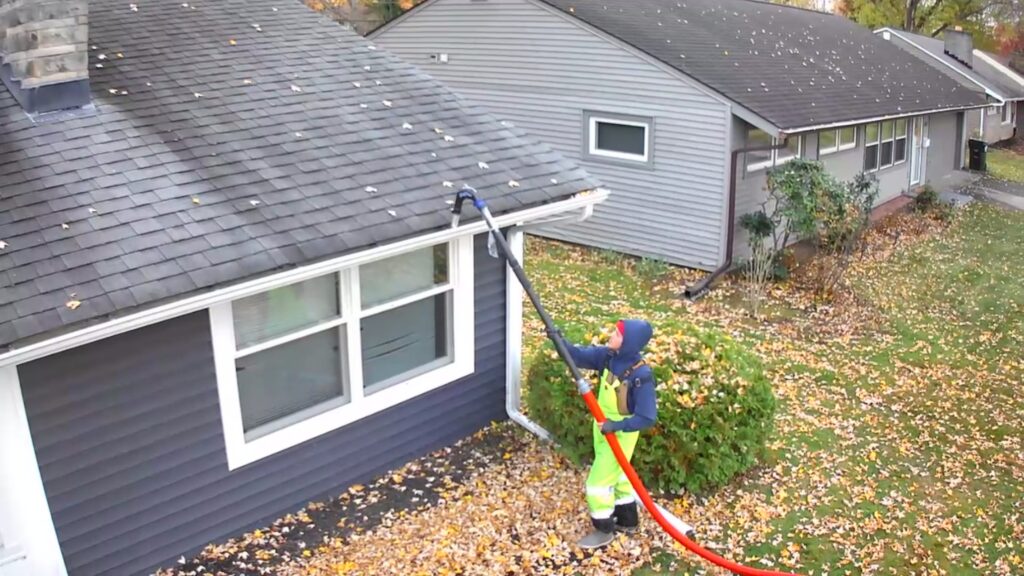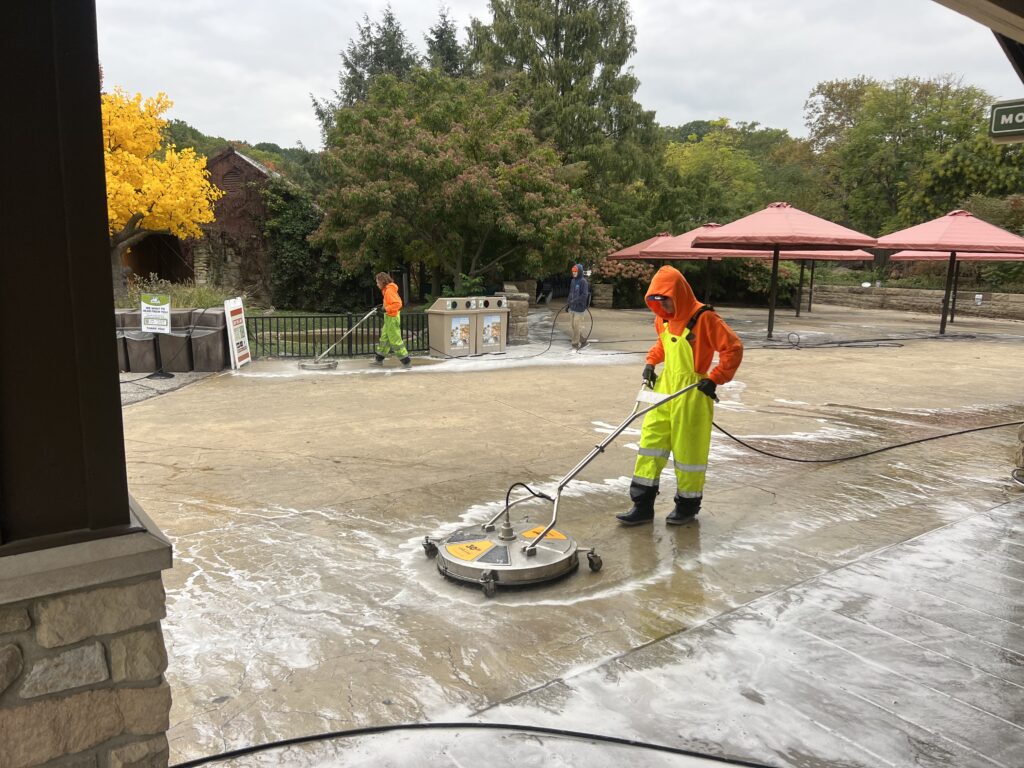
Proper maintenance of apartment buildings extends beyond indoor spaces to include the building’s exterior surfaces, which play a crucial role in tenant satisfaction, long-term structural integrity, and curb appeal. Regular pressure washing is one of the most efficient and impactful ways to preserve and protect these exteriors. Using high-pressure water, pressure washing removes dirt, grime, mold, and other pollutants that can erode building materials and negatively affect tenant perceptions. In this article, we explore the importance of pressure washing for apartment buildings, drawing on manufacturer recommendations, industry expertise, and research to highlight the benefits and best practices for maintaining an apartment’s exterior.
1. Enhanced Curb Appeal and Positive First Impressions
For apartment complexes, exterior appearance is paramount. Clean, well-maintained exteriors signal to tenants and potential renters alike that the property is well-managed and in good repair. According to the International Journal of Strategic Property Management, clean and visually appealing buildings experience higher occupancy rates and lower tenant turnover than those with neglected exteriors. In a competitive rental market, curb appeal can make a property stand out from nearby alternatives, giving it a distinct advantage.
Manufacturers like Karcher, a global leader in professional cleaning equipment, highlight that pressure washing can significantly enhance a property’s appearance by removing visible signs of aging, such as mildew, dirt, and pollution stains. By regularly pressure washing exterior walls, entryways, parking areas, and sidewalks, property managers maintain a polished look, which contributes positively to tenant perception and potentially increases the property’s rental value. According to Karcher, “Regular exterior cleaning reduces the accumulation of contaminants that lead to degradation,” supporting both the property’s value and its visual appeal.
2. Protection and Longevity of Building Materials
Without regular cleaning, environmental contaminants such as mold, algae, mildew, and pollution residue accumulate on building surfaces. These contaminants can be abrasive, gradually wearing away at exterior materials like siding, concrete, and wood, leading to costly repairs or replacements over time. The Pressure Washing Resource Association points out that contaminants create a wear layer that can deteriorate protective coatings, exposing the underlying building material to the elements. This exposure accelerates weathering and ultimately reduces the lifespan of these materials.
Sun Joe, a leading manufacturer of pressure washing equipment, recommends that apartment buildings be cleaned at least twice a year to avoid buildup that may permanently stain or damage surfaces. Regular maintenance through pressure washing can prolong the life of paint, siding, brick, and other building materials, ultimately saving on costs associated with premature repairs and repainting. In fact, Sun Joe reports that regular cleaning can “add years to exterior surfaces by keeping abrasive contaminants from penetrating and degrading the material.”

3. Health and Safety Benefits for Tenants
Tenant health and safety are priorities in property management, and pressure washing contributes directly to a healthier living environment. Mold, mildew, algae, and pollen, which frequently accumulate on outdoor surfaces, can degrade air quality over time. The Environmental Protection Agency (EPA) reports that these allergens and spores can easily enter buildings through windows, doors, and HVAC systems, posing respiratory risks, particularly for tenants with allergies or asthma.
Beyond air quality, safety concerns also arise when grime and algae buildup in high-traffic areas, such as walkways and stairways. Slippery surfaces can lead to falls, putting tenants and visitors at risk. Regular pressure washing can keep sidewalks, driveways, and entryways free from algae and debris, reducing the risk of accidents and supporting a safer environment. According to Greenworks, a manufacturer specializing in outdoor cleaning equipment, pressure washing is a vital aspect of preventive maintenance, as it helps eliminate slippery surfaces and other hazards that accumulate with time.
4. Sustainable and Environmentally Conscious Cleaning Practices
Modern pressure washing practices offer environmentally responsible options, minimizing water usage and chemical runoff. Many pressure washing service providers use eco-friendly, biodegradable detergents in combination with reduced water flow systems to provide deep cleaning without excessive resource use. Both Karcher and Sun Joe offer high-pressure, low-water usage systems that maximize cleaning effectiveness while conserving water, supporting sustainability efforts in property management.
The Pressure Washer Manufacturers Association (PWMA) advocates for the use of green cleaning products, reporting that eco-friendly cleaning agents combined with efficient pressure washing systems can reduce water use by up to 70% compared to traditional methods. This approach meets growing tenant expectations for eco-conscious property management, while also reducing potential environmental impact. With an increasing number of eco-conscious tenants, sustainable cleaning practices can enhance the property’s appeal to potential renters.

5. Cost Savings through Preventive Maintenance
Investing in regular pressure washing services can lead to significant cost savings by extending the lifespan of building materials and reducing the need for expensive repairs. Over time, dirt and pollutants cause erosion and weaken structures. A comprehensive study published in the Journal of Building Engineering found that properties that incorporate preventive maintenance practices like pressure washing face fewer costly repairs and can avoid premature surface replacements.
Greenworks, an expert in outdoor power equipment, advises property managers to include pressure washing as part of an annual or biannual maintenance plan. “Routine cleaning is one of the most effective ways to protect the building’s structural elements from early deterioration,” Greenworks states. Regular washing helps minimize damage, preserve building integrity, and defer expensive maintenance projects, saving property owners considerable expenses in the long run.
6. Compliance with Local Codes and Insurance Requirements
Keeping apartment buildings clean is not just about appearance; in many municipalities, it is also a legal requirement. Various local regulations mandate that buildings be free from excessive dirt, mold, and mildew. Neglecting these standards can result in fines, and in some cases, even insurance penalties. Regular pressure washing helps property managers remain in compliance with these municipal codes and avoid fines or other penalties that come with a poorly maintained exterior.
In certain cases, property insurance providers may also factor in the exterior condition when determining coverage rates. A well-maintained building is often seen as a lower risk for claims related to structural damage. Routine pressure washing demonstrates to insurers that a property is being actively cared for, potentially helping property owners secure better insurance rates.
7. Professional and Expert Tips for Effective Pressure Washing
To maximize the benefits of pressure washing, it’s essential to follow expert-recommended practices. Here are some tips endorsed by manufacturers and industry professionals:
- Select the Right Pressure Setting and Equipment: Sun Joe and other manufacturers advise that using the correct PSI (pounds per square inch) setting for each surface is critical. Concrete or brick may withstand high pressure, while siding or painted surfaces require lower settings to prevent damage. Sun Joe recommends consulting with professionals or referring to equipment guides to ensure appropriate PSI for different areas.
- Utilize Eco-Friendly Detergents: To minimize environmental impact, manufacturers like Karcher recommend using biodegradable, non-toxic detergents. These products are just as effective as traditional cleaners but pose less risk to the environment and water systems, making them ideal for large-scale, multi-unit buildings.
- Plan Seasonal Pressure Washing: Karcher and other industry experts recommend scheduling pressure washing in both spring and fall. Spring cleaning removes winter’s buildup of dirt, salt, and grime, while fall cleaning addresses summer pollutants and prepares the property for winter weather.
- Consider Professional Services: For multi-unit buildings, hiring professional pressure washing services is often the best approach. These experts can assess the property’s specific needs, select the correct pressure and cleaning agents, and have the necessary equipment to complete the job efficiently. Professional services also reduce the risk of accidental damage, which can occur when untrained individuals attempt to pressure wash sensitive materials.
8. Meeting Tenant Expectations and Improving Property Marketability
In today’s market, tenants are more discerning, often preferring to rent in properties that appear well-cared-for and clean. Regular pressure washing keeps buildings looking fresh and well-maintained, contributing to overall tenant satisfaction and potentially reducing turnover rates. Clean exteriors and common areas such as parking lots, pathways, and recreational spaces create a sense of pride and comfort for tenants, leading to higher retention.
Additionally, a well-maintained property is more attractive to prospective renters and investors. Buildings with visible dirt, mildew, or algae may struggle to attract high-quality tenants or competitive rental rates. Pressure washing is a simple yet highly effective way to make the property more marketable and enhance its appeal to a wide array of tenants, particularly in competitive rental markets.

Conclusion
Regular pressure washing is an essential aspect of apartment building maintenance, offering significant advantages for property aesthetics, durability, tenant satisfaction, and sustainability. By following best practices, such as using appropriate equipment, employing eco-friendly cleaning agents, and adhering to a regular cleaning schedule, property managers can protect their assets while enhancing tenant safety and comfort. Additionally, meeting manufacturer recommendations and local standards through pressure washing ensures regulatory compliance and supports cost-effective, long-term building care. Incorporating pressure washing into a preventive maintenance strategy demonstrates a commitment to property quality, benefiting both tenants and property owners alike.
Sources
- International Journal of Strategic Property Management
- Karcher. “The Benefits of Pressure Washing for Property Maintenance”
- Pressure Washing Resource Association. “Understanding the Importance of Routine Pressure Washing”
- Sun Joe. “Pressure Washing Guidelines for Multi-Unit Buildings”
- Environmental Protection Agency (EPA). “Health Impacts of Mold and Mildew”
- Pressure Washer Manufacturers Association (PWMA). “Green Pressure Washing Practices for Large-Scale Applications”
- Journal of Building Engineering
- Greenworks. “Effective Maintenance Through Pressure Washing”
- Sun Joe. “Guidelines on PSI Settings for Different Surfaces”
- Karcher. “Eco-Friendly Detergents for Sustainable Cleaning”
- Karcher. “The Benefits of Scheduled Pressure Washing”
